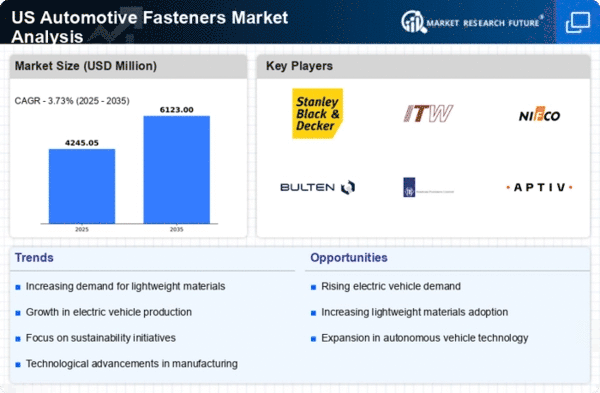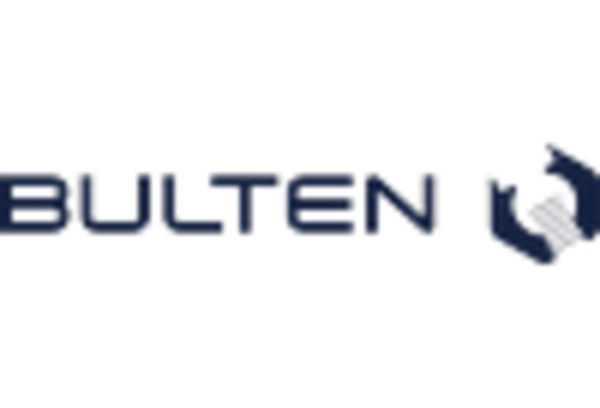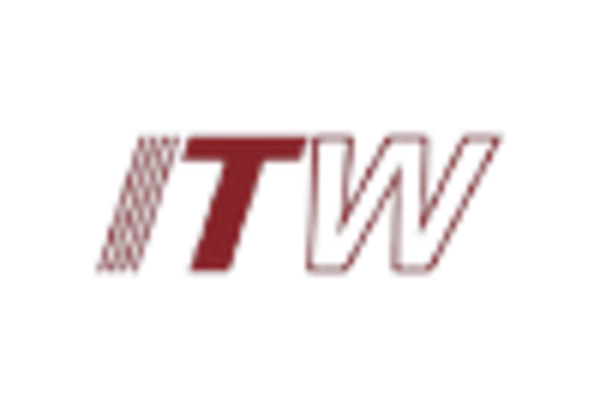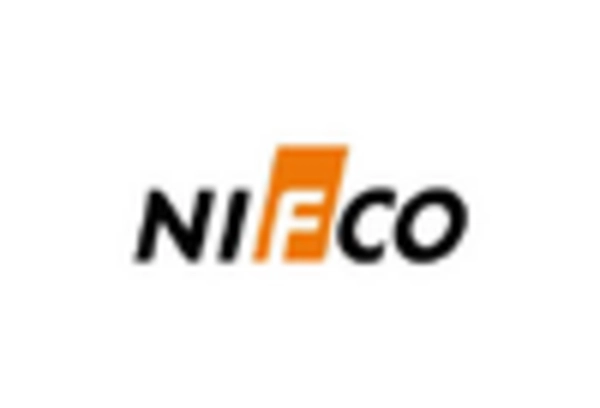Rising Vehicle Production
The automotive fasteners market experiences a notable boost due to the increasing production of vehicles in the US. In recent years, the automotive industry has seen a steady rise in vehicle manufacturing, with production levels reaching approximately 10 million units annually. This surge in vehicle production directly correlates with the demand for fasteners, as they are essential components in vehicle assembly. As manufacturers strive to meet consumer demand, the automotive fasteners market is likely to benefit from this upward trend. Furthermore, the shift towards electric vehicles (EVs) is anticipated to further drive the need for specialized fasteners, as these vehicles often require unique fastening solutions. Consequently, the automotive fasteners market is positioned to grow in tandem with the overall vehicle production landscape in the US.
Expansion of Aftermarket Services
The expansion of aftermarket services in the automotive sector plays a crucial role in shaping the automotive fasteners market. As vehicle ownership rates increase, the demand for replacement parts, including fasteners, is also on the rise. The aftermarket segment is projected to grow at a rate of approximately 6% annually, driven by the need for maintenance and repair services. This growth presents opportunities for fastener manufacturers to supply high-quality replacement fasteners that meet the specific needs of vehicle owners and repair shops. Additionally, the trend towards customization and personalization of vehicles further fuels the demand for specialized fasteners in the aftermarket. Consequently, the automotive fasteners market is poised to benefit from the expanding aftermarket services landscape.
Increasing Focus on Vehicle Safety
The increasing focus on vehicle safety standards in the US significantly impacts the automotive fasteners market. Regulatory bodies have implemented stringent safety regulations that require manufacturers to ensure the integrity and reliability of vehicle components, including fasteners. As a result, there is a growing demand for high-quality fasteners that can withstand rigorous safety tests. This trend is further amplified by consumer awareness regarding vehicle safety, prompting manufacturers to prioritize the use of advanced fastening solutions. The automotive fasteners market is likely to see a surge in demand for safety-critical fasteners designed to meet or exceed safety standards. This heightened emphasis on safety not only drives market growth but also encourages innovation in fastener design and materials.
Emergence of Electric and Hybrid Vehicles
The emergence of electric and hybrid vehicles is reshaping the automotive fasteners market in the US. As automakers increasingly invest in the development of EVs and hybrids, there is a corresponding need for innovative fastening solutions that cater to the unique requirements of these vehicles. Electric vehicles often utilize lightweight materials and advanced battery systems, necessitating specialized fasteners that can ensure structural integrity and performance. The automotive fasteners market is likely to see a shift in demand towards fasteners that are compatible with these new technologies. Furthermore, the growth of the EV market is projected to reach approximately $800 billion by 2027, indicating a substantial opportunity for fastener manufacturers to align their products with the evolving automotive landscape.
Technological Advancements in Manufacturing
Technological advancements in manufacturing processes significantly influence the automotive fasteners market. Innovations such as automation, robotics, and advanced materials are transforming how fasteners are produced. For instance, the adoption of automated assembly lines has increased efficiency and precision in fastener production, leading to reduced costs and improved quality. Additionally, the integration of computer-aided design (CAD) and computer-aided manufacturing (CAM) technologies allows for the development of more complex and customized fasteners. As manufacturers in the automotive sector continue to embrace these technologies, the automotive fasteners market is expected to expand, with a projected growth rate of around 5% annually. This growth is indicative of the industry's commitment to enhancing production capabilities and meeting the evolving demands of vehicle manufacturers.
















